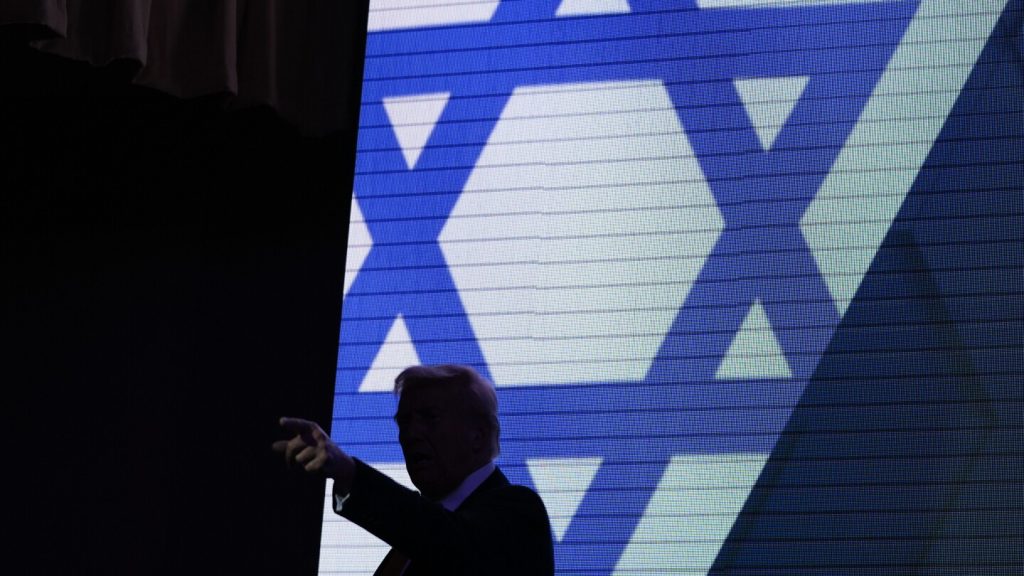In a recent address, former President Donald Trump issued a loyalty test to religious Americans, stating that he can best protect their freedoms and preemptively blaming members of certain faiths if he loses the presidential election in November. Jews and Catholics who vote for him are praised, while those who don’t are told they “need their head examined.” Trump warned that if he loses, “Jewish people would have a lot to do with the loss.” These remarks have been strongly criticized by Jewish leaders, including Rabbi Rick Jacobs, who called out Trump for perpetuating antisemitic lies and putting a target on American Jews.
Trump’s divisive rhetoric, particularly targeting specific religious groups, has been deemed out of line and even dangerous by rhetoric experts, religious leaders, and academics. Critics argue that non-Jews and non-Catholics should not be making public statements about what constitutes good Judaism or Catholicism. Trump’s campaign press secretary responded to Jewish leaders’ criticism by highlighting Trump’s support for Israel and portraying him as a strong supporter of Jewish Americans. However, experts point out that Trump’s rhetoric is divisive and seeks to create a divide between his religious followers and those who oppose him.
Trump’s recent comments about blaming Jews and Catholics if he loses the election have sparked controversy. Religious rhetoric expert Matthew Boedy suggests that Trump’s adoption of spiritual warfare rhetoric is dangerous to democracy and religion. By creating an “us” versus “them” dynamic and pitting different religious groups against each other, Trump is fostering division and placing himself as the ultimate savior for his followers, particularly among Christians. This kind of language has been likened to that used by authoritarian cult leaders.
Analyzing Trump’s stance on various religious groups, experts note that his positioning as a defender of Catholics and Jews goes against traditional political norms. Trump’s tough stance on immigration, which contradicts Catholic teachings, has also been highlighted as problematic. While Trump’s supporters view him as a strong advocate for their religious interests, critics argue that his language is divisive and dangerous. Jennifer Mercieca, a historian of American political rhetoric, warns against attempting to divide people based on religious identity, comparing Trump’s rhetoric to that of an authoritarian personality cult leader.
While Trump has received support from some Jewish Americans, a significant portion of the Jewish community has expressed strong criticism of his recent remarks. The American Jewish Committee and other advocacy groups have condemned Trump’s suggestion that blaming Jews for his potential loss is unacceptable and dangerous. Critics view Trump’s rhetoric as a clear attempt to scapegoat Jews and incite violence against them. Despite some positive interpretations of Trump’s statements, many within the Jewish community remain concerned about the implications of his divisive language. Overall, Trump’s comments about religious loyalty and blame have sparked widespread debate and condemnation across religious and political spectrums.


